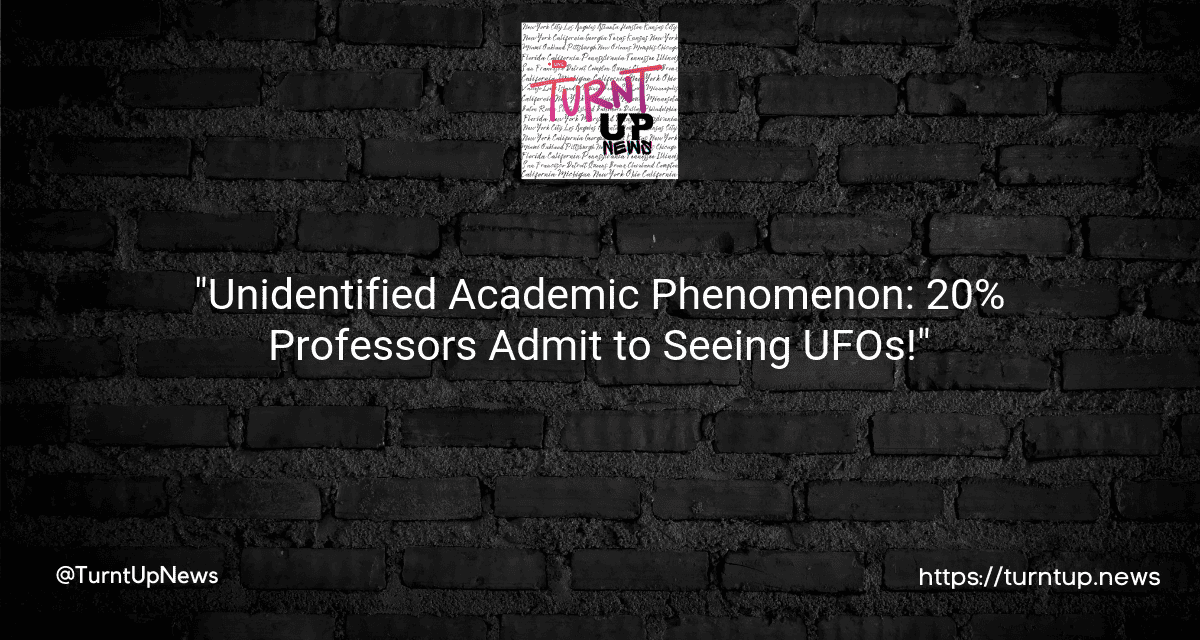🛸👀 “Unidentified Academic Phenomenon: 20% Professors Admit to Seeing UFOs!”
TL;DR: The world of academia just got a whole lot spookier! A recent survey reveals that nearly 20% of U.S. academics report seeing unidentified aerial phenomena (UAP), the professional term for UFOs. These intellectuals aren’t just interested in Earthly matters anymore – 37% express an interest in researching these sky-high mysteries. Could our next big discovery come from above rather than from our textbooks? 🤔💫🎓
Alright, folks, hold onto your hats, because it looks like our academicians aren’t just hitting the books anymore, they’re also peering at the heavens! 😲 Almost 20% of surveyed academics reported witnessing an unidentified aerial phenomenon (UAP) – the fancy term for a UFO. Whoa, talk about a side hustle! 🎓👽
This survey took into account the responses from 1,460 academics across 133 U.S. universities and 14 academic disciplines in 2022. No, it wasn’t a fraternity prank! 👨🎓👩🎓🛸
Those surveyed included the whole academic smorgasbord: from political science to physics, psychology to engineering. But regardless of their area of expertise, it seems 19% of them believed they (or someone they knew) had seen a UAP, while another 9% were on the fence, thinking they may have witnessed one. 🧐🔭
Now, these aerial phenomena aren’t just mind-boggling to us laymen. Even our brightest minds admitted they were stumped. In fact, 39% of these academics confessed they didn’t have a clue about what could explain these sightings. Is this the part where we cue the X-Files theme music? 🎶👽🔍
While some attributed these sightings to natural events (21%) or devices of unknown intelligence (13%), a whopping 36% expressed interest in actually conducting research into these aerial enigmas. Only 4% had ventured into the UAP territory so far, probably because the field is still a bit… well, alien to them. 👨🔬👽🧪
What’s holding our dear professors back? Interestingly, it seems like they’re waiting for a reputable scholar to lead the way. 43% said they’d be more likely to dive into this if a well-respected peer did so first. On top of that, more than half (55%) said they’d be more inclined to research if they could secure funding. It appears academic curiosity doesn’t pay the bills! 💰🔬🛸
Dr. Marissa Yingling, the study author from the University of Louisville in Kentucky, thinks that academia’s involvement in UAP research is crucial. And it’s not just her, folks! A staggering 64% of participants believed it was either very important or absolutely essential for academia to get involved in this research. Is it time we shifted our focus from the lecture halls to the night sky? 🌌💭
While this survey provides some tantalizing insights, it’s clear that further research with larger, more diverse cohorts is needed to really get a grasp on academics’ attitudes towards UAP. But for now, it’s clear that the academic world is cautiously dipping its toes into the vast, unknown sea of UAP research. 😮🚀🔭
Here’s a thought: Is our next big discovery in physics, engineering, or psychology not going to come from a lab or a





